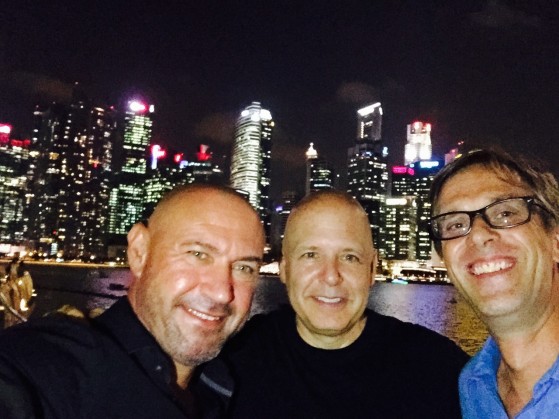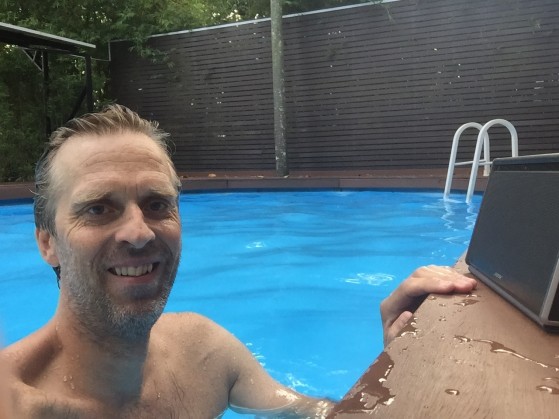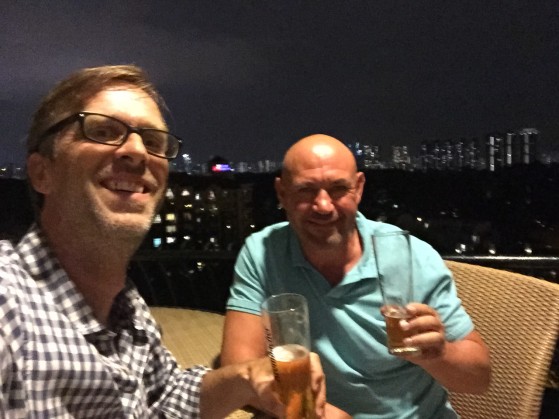
Today, I have decided to write a post about how one speaker, Immaculee Ilibagiza, was used as an example by another speaker, Shep Hyken, to teach another speaker, Me, something about speaking.
Shep Hyken is the Immediate Past President of the National Speaker Association of America (NSA). He is also a world class speaker on customer service.
He is in Singapore and this evening, I had the honor of spending 3+ hours with him and Andrew Bryant, the newly elected president of Asia Professional Speakers Singapore.
During our very interesting dinner, we discussed about everything from Donald Trump to Russia. But my post today will be about what one of the best speakers in the world has to say about the best speakers in the world, and what we can learn from them.
Shep is in the Speaker’s Hall of Fame, has been a professional speaker since 1983 (!), and is a world authority on customer service with something like more than 60,000 followers on Twitter.
When he was the President of NSA, he got the chance to go around the world and listen to some of the best speakers in the world.
I asked him to give me the names of some of the speakers that he had heard who, he thought, were the most valuable speakers for a speaker to hear.
Now, something very interesting happened.
Shep mentioned speakers who had been great at giving concrete advice on how to get return on investment, and then he mentioned Immaculee Ilibagiza.
If you do not know who Immaculee Ilibagiza is, know this: She is from Rwanda and survived hidden for 91 days with seven other women in a small bathroom with an area of 12 feet during the genocide.
She speaks about forgiveness, which is a very powerful message, especially when you learn that most of Ilibagiza’s family — her mother, her father, and her two brothers Damascene and Vianney — were killed by Hutu Interahamwe soldiers.
Her speech has nothing to do with getting a “return on investment” as a speaker. It is a totally different kind of speech.
And that is the message.
Some people think that you have to follow a “formula” to be a professional speaker, that you have to be funny, that you have to be charismatic, that you have to be a great story teller, or that you have to have a lot of facts, and so on.
The truth is that there is no formula.
You can be speaking on how to use social media to increase sales with slides full of charts, or be a funny speaker sharing what you learnt from climbing Mount Everest, or speak about the power of forgiveness after surviving a genocide.
As long as you tell YOUR story. The story you believe in, the story you know how to tell, in the way you know how to tell it.
Lesson: Shep’s message was so simple, yet so relevant —
Take every chance you can to listen to great speakers. Learn as much as you can from what makes their speeches great; but do not try to copy them, do not try to become them, do not change your style to be more like them.
Instead, use all that inspiration from other speakers to help you develop your own message. Your own style. Your own path.
Great speakers – and great speeches – can teach you so much about being a great speaker, or giving a great speech.
The only thing they can not teach is how you are going to give yours.

